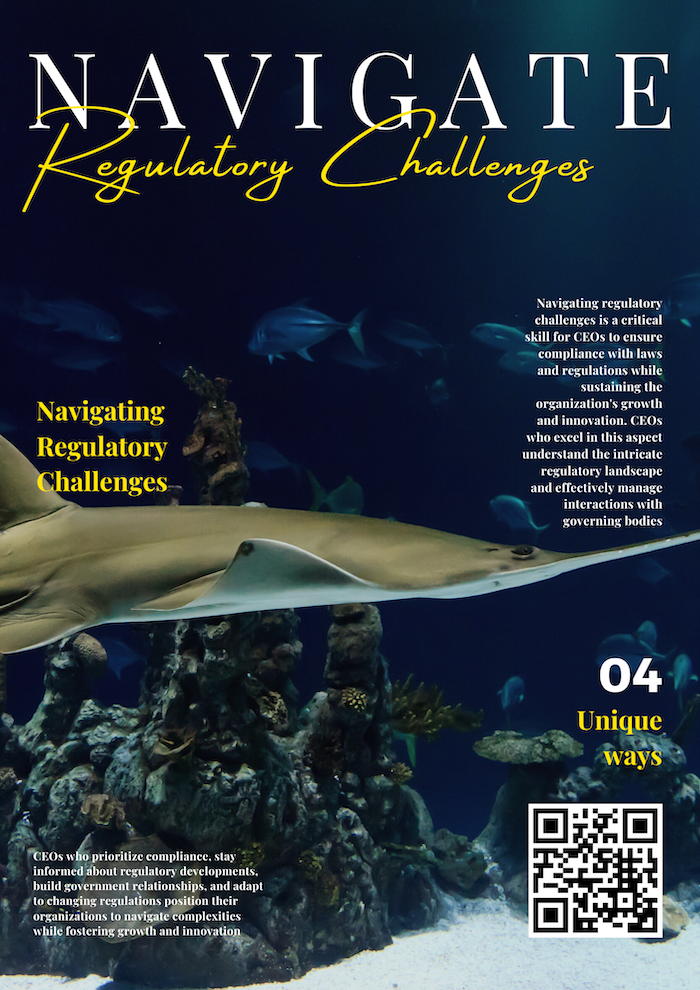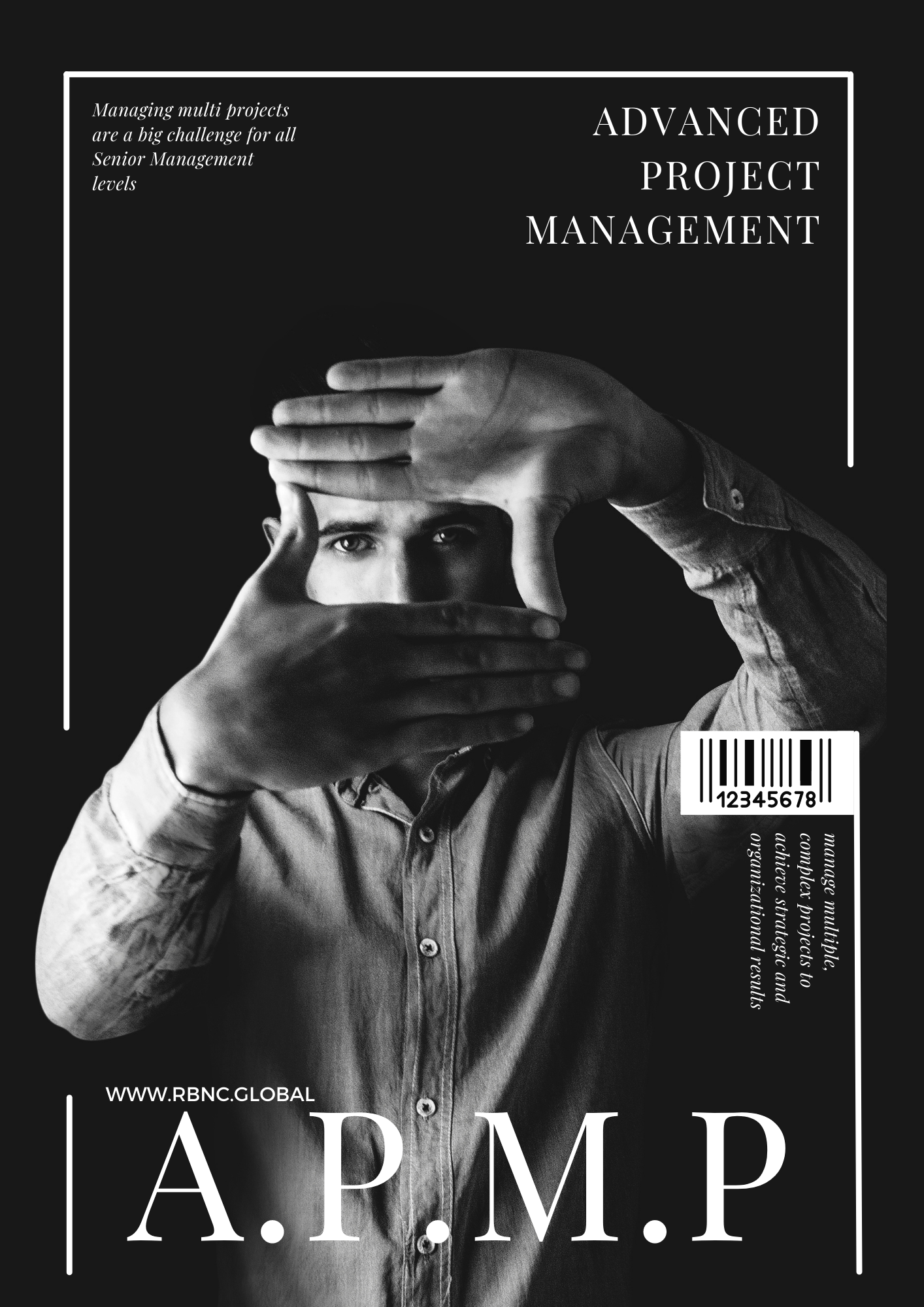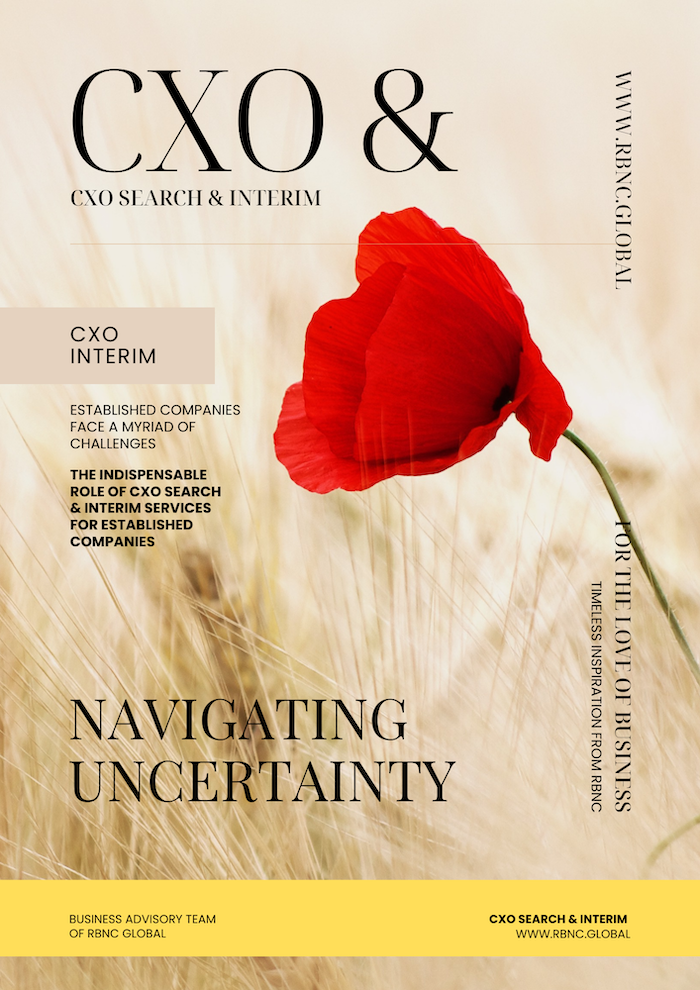Navigating Regulatory Challenges - The CEO Skills
Navigating regulatory challenges is a critical skill for CEOs to ensure compliance with laws and regulations while sustaining the organization's growth and innovation. CEOs who excel in this aspect understand the intricate regulatory landscape and effectively manage interactions with governing bodies. In this section, we'll delve deeper into the multifaceted dimensions of navigating regulatory challenges that define exceptional CEO leadership.
Regulatory Compliance:
Exceptional CEOs prioritize compliance with relevant laws, regulations, and industry standards.
- Compliance Teams: These CEOs establish dedicated teams responsible for monitoring and ensuring adherence to regulatory requirements.
- Regular Audits: CEOs conduct regular internal audits to assess the organization's compliance and identify areas that need improvement.
- Ethical Practices: Exceptional CEOs prioritize ethical conduct and establish policies that align with legal requirements and industry best practices.
Regulatory Intelligence:
CEOs who excel in navigating regulatory challenges stay informed about regulatory changes and developments.
- Monitoring Updates: These CEOs actively monitor regulatory news and updates to stay ahead of potential changes that could impact the organization.
- Industry Associations: Exceptional CEOs engage with industry associations and networks to gain insights into emerging regulatory trends and challenges.
- Legal Counsel: CEOs consult legal experts who specialize in relevant areas to interpret complex regulations and provide guidance.
Government Relations:
CEOs skilled in navigating regulatory challenges build relationships with government officials and agencies.
- Advocacy: These CEOs advocate for policies that align with the organization's interests, participating in discussions and sharing insights on potential impacts.
- Regulatory Engagement: Exceptional CEOs engage in productive conversations with regulatory bodies, seeking to clarify requirements and address concerns.
- Collaborative Approach: CEOs work collaboratively with regulators, showcasing the organization's commitment to compliance and contributing to informed decision-making.
Adapting to Regulatory Changes:
CEOs who prioritize navigating regulatory challenges are prepared to adapt to changing regulations.
- Flexibility: These CEOs maintain a flexible mindset, understanding that regulations can evolve and require adjustments to the organization's operations.
- Rapid Response: Exceptional CEOs can quickly adjust strategies and processes in response to new regulations, minimizing disruptions.
- Communication Strategy: CEOs communicate regulatory changes transparently to internal and external stakeholders, ensuring everyone is well-informed.
Conclusion:
Navigating regulatory challenges is a critical aspect of exceptional CEO leadership. CEOs who prioritize compliance, stay informed about regulatory developments, build government relationships, and adapt to changing regulations position their organizations to navigate complexities while fostering growth and innovation. By upholding ethical practices, embracing collaboration, and maintaining a proactive approach to regulatory adherence, CEOs ensure that their organizations operate within legal frameworks and contribute positively to the business landscape.









